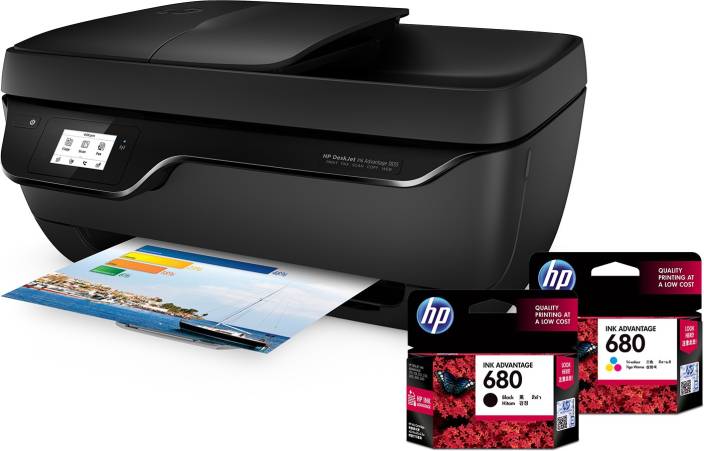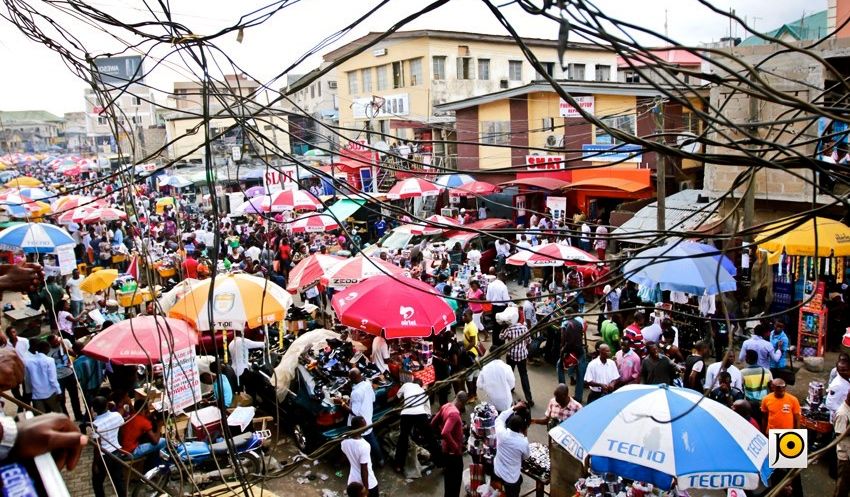HP counters counterfeit product supply, without addressing the demand
HP’s Anti Counterfeiting and Fraud (ACF) programme might be focusing too much on the supply of fake products while doing little to address the demand.

Hewlett-Packard (HP)—a global IT company best known for her laptops and printers—is working with local law enforcement authorities in Nigeria to clamp down on counterfeit manufacturers.
According to an official statement sent to Benjamin Dada, HP working with the Nigerian Police Force (NPF) has been able to close down 12 illegal operations trading in cartridges for HP printers.
In October 2018, police officials raided many premises across Nigeria, including Abuja, Lagos, Edo State and Rivers State. The sites ransacked included outlet stores and hidden manufacturing sites for fakes. In total, the authorities confiscated 67,000 illicit print cartridges.
This exercise of clamping down on fake products bearing HP's trademark started in March 2017. By July of 2017, authorities were reported to have found and confiscated about 167,000 counterfeit items. These clamp down process has been made possible through HP’s Anti Counterfeiting and Fraud (ACF) programme, where the company (HP) provides law enforcement officials with the intelligence needed to identify original HP products as opposed to counterfeits.

Commenting on this development, the Director, Global Anti-Counterfeit Programme, HP—Glenn Jones, said that "HP is proud of its continued work with local authorities especially the Police force in Africa to combat the sale of counterfeit print supplies. We thank the Nigerian Police authorities for their cooperation and swift action in this successful seizure and their determination to apprehend and prosecute counterfeiters who break the law", he continues,
"Through our unwavering efforts and commitment to removing counterfeit products from the market, we continue to focus on the protection of our customers through our Anti-Counterfeiting and Fraud Programme", he concluded.
Jones disclosed that across EMEA over the last five years, approximately 12 million counterfeits and components have been seized by local authorities, supported by HP.

Now that we are done talking about what HP is doing to curb the supply of counterfeit products in the market let us tell you why it even existed in the first place and the realities of consumers.
The growing market for counterfeit supplies
The prevalence of fake products is a problem everywhere in the world. In West Africa's largest IT market—Computer Village, Ikeja—visitors are greeted with a barrage of products, some of which they later find to be counterfeit.
So, to navigate this, frequent shoppers build relationships with suppliers who have at one time sold them original products.
If you have ever had a friend tell you, "I have a guy [read: trusted supplier] in Computer Village", it was borne out of what I've just described above.

For victims of illegal imitations (aka counterfeit products) a lot of problems can be caused.
First, warranties become a thing of the mind. Ideally, when you buy a product from a manufacturer it comes with a guarantee, but what warranty can one get from a product that was not produced by the manufacturer?
Secondly, compatibility issues. Sometimes, fake product parts do not even work with the whole (which could have been original). So, buyers go home and curse themselves because newly-purchased part doesn't work.
However, not all who buy counterfeit products are victims**. Some are users**—that is they were sufficiently informed, but bought it regardless.
The reason is because counterfeits are attractive, on three major levels— lower price points, widespread availability and being "good-enough". Lower price points of counterfeits is a major attraction to Nigerians who have a relatively smaller discretionary income—that is, what is left after tax and other life's necessities have been deducted.

Meet John*—an employed Nigerian who frequents Computer Village for his tech gadget needs. He is what we would define as a user** (see definition above). He admits that he has knowingly bought a fake toner (usually used interchangeably with a "cartridge" but in reality they are different) before.
What are counterfeit or fake HP cartridges?
According to HP, Counterfeit HP cartridges are predominantly refilled or remanufactured print cartridges packed in unauthorized or fake reproductions of HP packaging.
"...I'd rather refill than buy in the market because about 80% of the vendors in Ikeja and Lagos island already sell fakes. Unless a few HP-licensed dealers and the prices are very ridiculous", John tells Benjamin Dada [emphasis mine, lightly edited for cohesion].
He goes ahead to advise me on what the strategy for purchasing a fake is.
"...the code is to buy original from HP-licensed vendors, refill twice (against HP's recommendation). Continue the cycle".
He concludes by saying that the "Print quality is always the same".
From his explanation, John uses a laser printer which uses toner powder which is more expensive than the deskjet printing counterpart—a cartridge.
So, in John's case, it wasn't about unknowingly buying a unauthorised print cartridge. But finding an affordable and easily accessible toner.

However, there is Peju—a victim of a faker cartridge purchase.
Speaking on how she discovered that the product she bought was fake, she explained that it was by "trial and error". Peju had gone to the market to buy a black ink for her printer, the ink did work for a while. However, about the same time at a later date, her coloured ink finished and she went back to buy a refill (randomly from a different retailer). She put both inks inside her printer and the black ink "pretty much stopped working", she said.
"My printer was showing blinking red lights for the black ink indicator (like the cartridge was empty), but it was relatively new, so I was confused. Long story short, my printer wasn't printing in black ink, just coloured. That's how I realised they had "gba-d"[duped] me”, she concluded.
From Peju's explanation, she is using a deskjet printer which uses cartridge, whose ink is cheaper than that of a laser toner.
This could explain why she would rather an authentic cartridge, as opposed to John, because cartridges are cheaper.
Now, for the likes of Peju, unable to tell the difference between a fake or an HP-manufactured cartridge, HP has put together 4 ways in which customers can spot the fakes and that solves half of the demand problem—education.
However, there remains the problem of affordability and widespread availability of original HP toners. Without solving for those on the demand side, HP's Anti Counterfeiting and Fraud (ACF) programme could be met with limited success.
*fake names and pictures have been used






